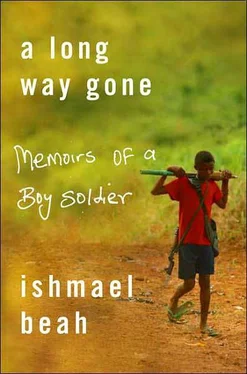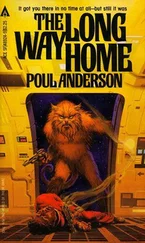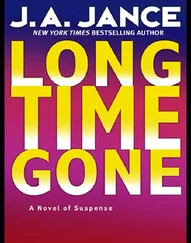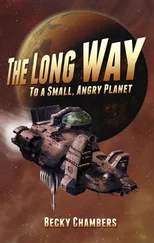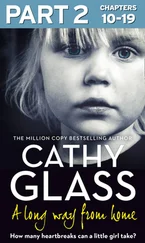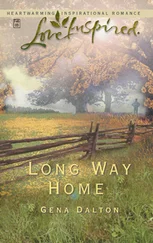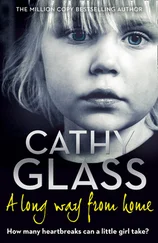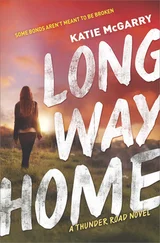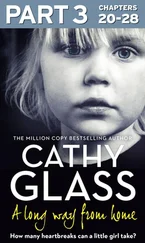As evening approached, people started arriving from the mining area. Their whispers, the cries of little children seeking lost parents and tired of walking, and the wails of hungry babies replaced the evening songs of crickets and birds. We sat on Grandmother’s verandah, waiting and listening.
“Do you guys think it is a good idea to go back to Mogbwemo?” Junior asked. But before either of us had a chance to answer, a Volkswagen roared in the distance and all the people walking on the road ran into the nearby bushes. We ran, too, but didn’t go that far. My heart pounded and my breathing intensified. The vehicle stopped in front of my grandmother’s house, and from where we lay, we could see that whoever was inside the car was not armed. As we, and others, emerged from the bushes, we saw a man run from the driver’s seat to the sidewalk, where he vomited blood. His arm was bleeding. When he stopped vomiting, he began to cry. It was the first time I had seen a grown man cry like a child, and I felt a sting in my heart. A woman put her arms around the man and begged him to stand up. He got to his feet and walked toward the van. When he opened the door opposite the driver’s, a woman who was leaning against it fell to the ground. Blood was coming out of her ears. People covered the eyes of their children.
In the back of the van were three more dead bodies, two girls and a boy, and their blood was all over the seats and the ceiling of the van. I wanted to move away from what I was seeing, but couldn’t. My feet went numb and my entire body froze. Later we learned that the man had tried to escape with his family and the rebels had shot at his vehicle, killing all his family. The only thing that consoled him, for a few seconds at least, was when the woman who had embraced him, and now cried with him, told him that at least he would have the chance to bury them. He would always know where they were laid to rest, she said. She seemed to know a little more about war than the rest of us.
The wind had stopped moving and daylight seemed to be quickly giving in to night. As sunset neared, more people passed through the village. One man carried his dead son. He thought the boy was still alive. The father was covered with his son’s blood, and as he ran he kept saying, “I will get you to the hospital, my boy, and everything will be fine.” Perhaps it was necessary that he cling to false hopes, since they kept him running away from harm. A group of men and women who had been pierced by stray bullets came running next. The skin that hung down from their bodies still contained fresh blood. Some of them didn’t notice that they were wounded until they stopped and people pointed to their wounds. Some fainted or vomited. I felt nauseated, and my head was spinning. I felt the ground moving, and people’s voices seemed to be far removed from where I stood trembling.
The last casualty that we saw that evening was a woman who carried her baby on her back. Blood was running down her dress and dripping behind her, making a trail. Her child had been shot dead as she ran for her life. Luckily for her, the bullet didn’t go through the baby’s body. When she stopped at where we stood, she sat on the ground and removed her child. It was a girl, and her eyes were still open, with an interrupted innocent smile on her face. The bullets could be seen sticking out just a little bit in the baby’s body and she was swelling. The mother clung to her child and rocked her. She was in too much pain and shock to shed tears.
Junior, Talloi, and I looked at each other and knew that we must return to Mattru Jong, because we had seen that Mogbwemo was no longer a place to call home and that our parents couldn’t possibly be there anymore. Some of the wounded people kept saying that Kabati was next on the rebels’ list. We didn’t want to be there when the rebels arrived. Even those who couldn’t walk very well did their best to keep moving away from Kabati. The image of that woman and her baby plagued my mind as we walked back to Mattru Jong. I barely noticed the journey, and when I drank water I didn’t feel any relief even though I knew I was thirsty. I didn’t want to go back to where that woman was from; it was clear in the eyes of the baby that all had been lost.
“You were negative nineteen years old.” That’s what my father used to say when I would ask about what life was like in Sierra Leone following independence in 1961. It had been a British colony since 1808. Sir Milton Margai became the first prime minister and ruled the country under the Sierra Leone Peoples Party (SLPP) political banner until his death in 1964. His half brother Sir Albert Margai succeeded him until 1967, when Siaka Stevens, the All People’s Congress (APC) Party leader, won the election, which was followed by a military coup. Siaka Stevens returned to power in 1968, and several years later declared the country a one-party state, the APC being the sole legal party. It was the beginning of “rotten politics,” as my father would put it. I wondered what he would say about the war that I was now running from. I had heard from adults that this was a revolutionary war, a liberation of the people from corrupt government. But what kind of liberation movement shoots innocent civilians, children, that little girl? There wasn’t anyone to answer these questions, and my head felt heavy with the images that it contained. As we walked, I became afraid of the road, the mountains in the distance, and the bushes on either side.
We arrived in Mattru Jong late that night. Junior and Talloi explained to our friends what we had seen, while I stayed quiet, still trying to decide whether what I had seen was real. That night, when I finally managed to drift off, I dreamt that I was shot in my side and people ran past me without helping, as they were all running for their lives. I tried to crawl to safety in the bushes, but from out of nowhere there was someone standing on top of me with a gun. I couldn’t make out his face as the sun was against it. That person pointed the gun at the place where I had been shot and pulled the trigger. I woke up and hesitantly touched my side. I became afraid, since I could no longer tell the difference between dream and reality.
Every morning in Mattru Jong we would go down to the wharf for news from home. But after a week the stream of refugees from that direction ceased and news dried up. Government troops were deployed in Mattru Jong, and they erected checkpoints at the wharf and other strategic locations all over town. The soldiers were convinced that if the rebels attacked, they would come from across the river, so they mounted heavy artillery there and announced a 7:00 p.m. curfew, which made the nights tense, as we couldn’t sleep and had to be inside too early. During the day, Gibrilla and Kaloko came over. The six of us sat on the verandah and discussed what was going on.
“I do not think that this madness will last,” Junior said quietly. He looked at me as if to assure me that we would soon go home.
“It will probably last for only a month or two.” Talloi stared at the floor.
“I heard that the soldiers are already on their way to get the rebels out of the mining areas,” Gibrilla stammered. We agreed that the war was just a passing phase that wouldn’t last over three months.
Junior, Talloi, and I listened to rap music, trying to memorize the lyrics so that we could avoid thinking about the situation at hand. Naughty by Nature, LL Cool J, Run-D.M.C., and Heavy D & The Boyz; we had left home with only these cassettes and the clothes that we wore. I remember sitting on the verandah listening to “Now That We Found Love” by Heavy D & The Boyz and watching the trees at the edge of town that reluctantly moved to the slow wind. The palms beyond them were still, as if awaiting something. I closed my eyes, and the images from Kabati flashed in my mind. I tried to drive them out by evoking older memories of Kabati before the war.
Читать дальше
